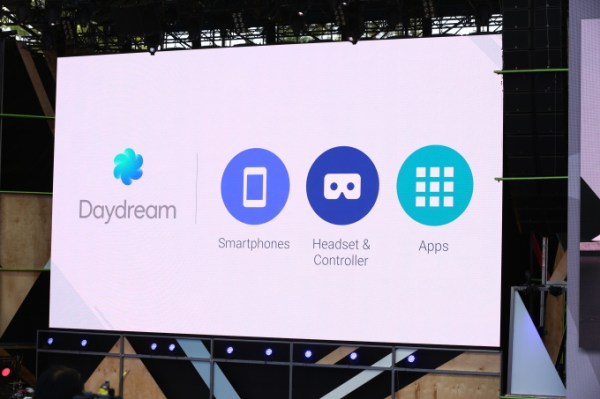VR developers looking to get started on readying content for Google’s new Daydream VR platform can get started today thanks to an Unreal Engine preview version (4.1.2) that adds support for the Google platform. In addition, Google Product Manager Nathan Martz told the audience of developers at I/O’s morning VR session that Unity native integration would be coming in the summer and that there was a plug-in available today that would let people get started on building for Daydream.
Daydream, which Google announced yesterday, will be the company’s next major step in tackling mobile VR. Powered by the VR optimizations of Android N, developers will be able to build content on Daydream compatible devices and give users more sophisticated virtual reality experiences than they’ve previously experience on mobile VR.
Key to getting these experiences out there is game engine support which allows developers to easily ship their content to multiple platforms without tedious effort on their part.
Epic Games Technical Director Nick Whiting told me that the Unreal Engine integration would also be back-compatible with Google Cardboard class apps so developers could reach out to users who have already embraced Google’s fun little headset and start developing for both.
One of the revelations made regarding the Daydream platform was that all games will require the motion controller. This can be both constricting to developers in reaching maximum users, but it also gives developers the ability to design for a unified experience.
“We can build content directed at that baseline functionality that everyone will have a three degree-of-freedom motion controller with a trackpad,” Epic Games Technical Director Nick Whiting told me.
The importance of mobile to the VR landscape seems to be lost on few at the I/O developers conference, Unity CEO John Riccitiello spoke to this onstage and detailed how support would be coming soon for their engine’s 5.5 million developers.
“Mobile is going to drive this in the fullness of time, and we’re there to support that,” Riccitiello said. “I don’t believe that VR is going to be about games or simple shopping apps, I think it’s literally going to extend the human experience.”
